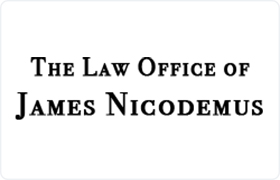Libertyville Real Estate Other Lawyer, Illinois
Sponsored Law Firm
-
 x
x

Click For More Info:
-
The Law Offices of James Nicodemus
2700 Patriot Blvd Suite 250 Glenview, IL 60026» view mapReal Estate Law Experienced Real Estate Lawyer
When you need accurate representation, whether it’s a divorce lawyer, family lawyer or child custody attorney, James Nicodemus is there for you.
800-986-5891
Includes: Commercial Leasing, Commercial Real Estate, Condominiums, Conveyancing, Housing & Urban Development, Premises Liability, Residential Real Estate, Title Insurance
Matthew Moodhe
Condominiums, Real Estate, Lawsuit & Dispute, Business
Status: In Good Standing Licensed: 34 Years
Kerry Tara Bartell
Condominiums, Real Estate, Industry Specialties, Business
Status: In Good Standing Licensed: 26 Years
Kerry Bartell
Condominiums, Real Estate, Industry Specialties, Business
Status: In Good Standing Licensed: 26 Years
Katharine Wark Griffith
Condominiums, Real Estate, Transactions, Corporate
Status: In Good Standing Licensed: 20 Years
John Howard Bickley
Condominiums, Real Estate, Litigation, Civil Rights
Status: In Good Standing Licensed: 47 Years
Julie A. Jacobson
Commercial Real Estate, Landlord-Tenant, Litigation, Civil Rights
Status: In Good Standing Licensed: 25 Years
Matthew L. Moodhe
Condominiums, Real Estate, Lawsuit & Dispute, Business
Status: In Good Standing Licensed: 33 Years
Ryan Howard Shpritz
Condominiums, Real Estate, Litigation, Business
Status: In Good Standing Licensed: 23 Years
John Bickley
Condominiums, Real Estate, Litigation, Civil Rights
Status: In Good Standing Licensed: 47 Years
Ryan Shpritz
Condominiums, Real Estate, Litigation, Business
Status: In Good Standing Licensed: 23 Years
 James Nicodemus Glenview, IL
James Nicodemus Glenview, IL AboutThe Law Offices of James Nicodemus
AboutThe Law Offices of James Nicodemus Practice AreasExpertise
Practice AreasExpertise
